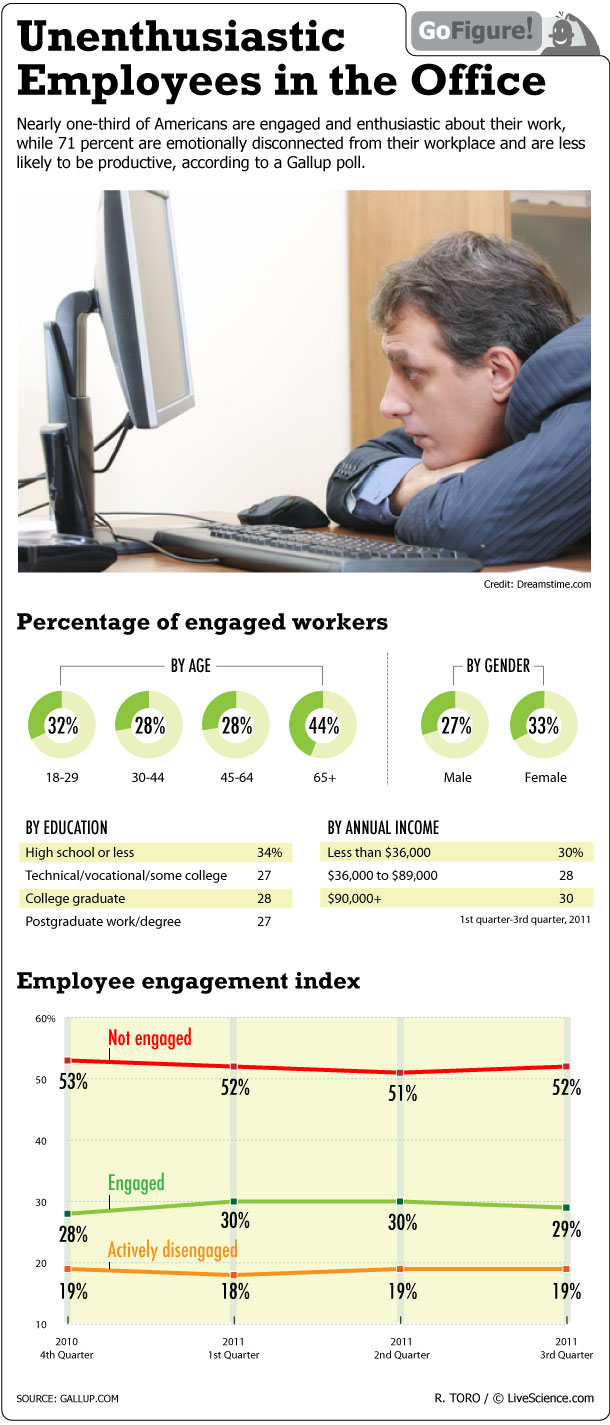Slacker Staffers: Disengaged in the Workplace (Infographic)

How engaged are you at your job? The answer may not only affect your productivity and job satisfaction but may also be partly in your control, research has suggested.
People who approach their work with energy and dedication are more productive and more willing to go that extra mile, according to research published in the August 2011 issue of the journal Current Directions in Psychological Science. Study researcher Arnold Bakker, a psychologist at Erasmus University Rotterdam in the Netherlands, found that both job resourches — such as social support, feedback, and opportunities for autonomy — along with an employee's personal resources — such as self-esteem and optimism — are keys to worker engagement.
According to Bakker, engagement and high-quality performance are greatest when the demands of the job are highest. This principle applies even to what we think of as low-level jobs, such as those at fast-food joints, he said.
Outside factors, however, can stymie even the most dedicated workers. Take a recession. Researchers who detailed their work in 2010 in the International Journal of Management and Enterprise Development, looked at data collected in 2009 at the height of the U.S. recession, from several hundred full-time employees in a range of jobs regarding job satisfaction and worries. Respondents indicated they were concerned about whether or not they would keep their jobs and whether or not they would be compensated if their company went under. [Survey Reveals Most Satisfying Jobs]
The workplace anxiety was linked with lower job satisfaction and lower worker engagement, which the team defined as being fully involved in and enthusiastic about work. The team recommended that managers acknowledge the impact of the anxiety generated during recessionary times and take actions to reduce the negative impact of workplace anxiety by providing employees with information related to the organization's current situation and each employee's status.
Sign up for the Live Science daily newsletter now
Get the world’s most fascinating discoveries delivered straight to your inbox.

Why is yawning contagious?
Scientific consensus shows race is a human invention, not biological reality
